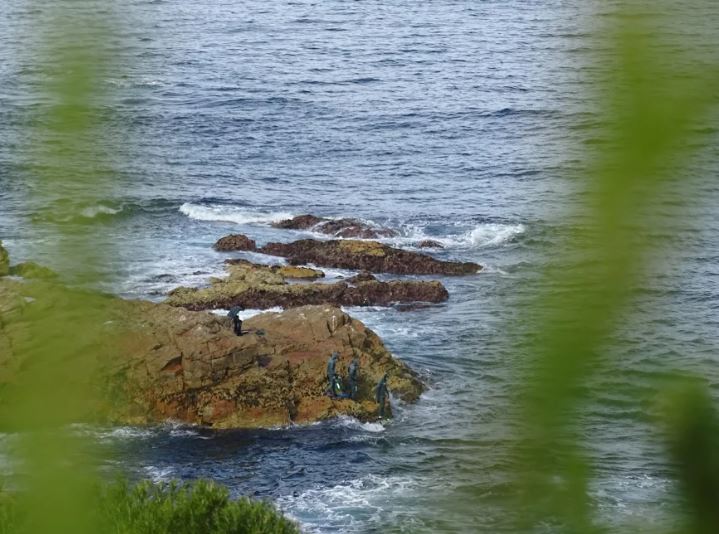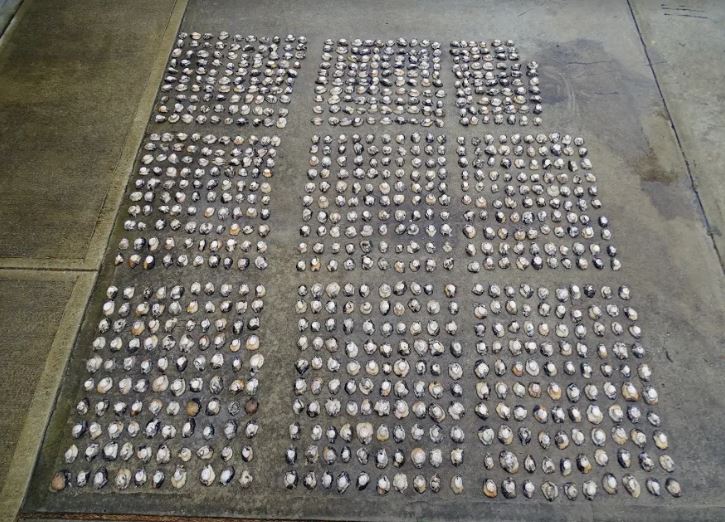
The four offenders were nabbed after an extensive surveillance operation in the Bournda National Park. Photo: DPI.
A fisheries surveillance operation south of Tathra has seen four men in possession of 867 abalone apprehended.
NSW Department of Primary Industries (DPI) Director of Fisheries Compliance, Patrick Tully, says the four offenders were found with the abalone in their vehicle in November, following extensive surveillance along a remote stretch of coastline in the Bournda National Park.
“DPI Fisheries Officers and Bega Police intercepted the suspected illegal fishers, seizing the abalone and four sets of dive gear which were also found in the vehicle,” Mr Tully says.
“Charges have not been laid yet, but potential offences include: trafficking in fish; possessing more than the possession limit of abalone (aggravated); possessing prohibited size abalone (aggravated); and possessing shucked abalone adjacent to water.
“The maximum penalty for a person who trafficks in an indictable species of fish is 10 years imprisonment and monetary penalties up to 10 times the commercial value of the abalone.
“There are also maximum penalties of $44,000 for possession of fish in circumstances of aggravation and penalties of $5,500 per person for illegally shucking abalone,” he says.
With the Christmas seafood season upon us, Greg Vakaci, Acting Director of NSW Biosecurity and Food Safety adds that illegally harvested abalone can pose a serious health risk to consumers.
“There are strict food safety controls in place for harvesting and selling seafood for consumption. These controls ensure that consumers get the best quality and safest possible seafood on their plates,” Mr Vakaci says.
“Some seafood such as shellfish require extra care to ensure that it is safe to eat. Poor food safety practices during harvesting, transport, processing and sale can result in an increase in microbiological contamination.
“We recommend people only buy shellfish from reputable retailers as their product has been monitored for safety.”

This is what 867 abalone look like, seized by DPI Fisheries Officers and Bega Police in November. Photo: DPI.
Greg Finn from the Abalone Association of NSW says, “Illegal abalone fishing and sales can threaten legitimate industries and have a damaging effect on the sustainability of the abalone stocks.”
“Anyone with information on suspected illegal fishing activity is urged to contact their local DPI fisheries office, call the Fisher Watch phone line on 1800 043 536 or report illegal fishing activities online.”
In the lead up to summer, the DPI is warning fishers not be complacent about fish bag and size limits as Fisheries Officers will be on the lookout for unlawful activity.







